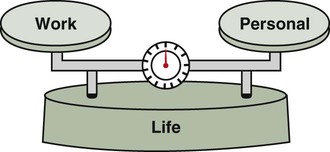Chapter 11 One way to gain insight into your longstanding behavior patterns is to examine your family history. Specifically, what “invisible” role do you play in your family? What did your family think of you when you were growing up? Were you the responsible one? Were you the angry, resentful one? Were you the perfect child? Were you the rebel? If you can answer this question honestly, you have come a long way toward gaining insight into your behavior patterns. Box 11-1 offers some deeply ingrained patterns related to families. Do you recognize one or more of these in yourself? Usually, problem employees will have an opportunity to rectify their behavior to avoid termination. They will be presented with a “performance improvement plan,” often called a “PIP.” Usually crafted in a collaboration between the employee’s manager and the Human Resources Department (if there is one), the PIP will identify the problem behavior, prescribe expected behavioral improvements, and establish a deadline for progress, usually 30 or 60 days. Figure 11-1 shows a confidential discussion in which a manager places an employee on a PIP. In an ideal world, you will achieve a work–life balance that works just for you, because we are all unique. Ideally, you are a skilled, valued, and happy employee deriving enough satisfaction and income from your job that it allows you to pursue your personal and family goals with a clear mind and adequate resources. Work–life balance is always fluctuating and we all must work hard to restore this healthy equilibrium as seen in Figure 11-2. Our work–life balance is like our health, always seeking the homeostasis that will keep us healthy and achieve maximum results in the many roles we serve in our lives.
Managing Your Emotions
 Recognize when your work and personal problems overlap.
Recognize when your work and personal problems overlap.
 Describe the emotional problems that personal problems can cause at work.
Describe the emotional problems that personal problems can cause at work.
 Describe the components of an anger management program.
Describe the components of an anger management program.
 List the advantages of being optimistic.
List the advantages of being optimistic.
Separating Your Work and Personal Problems
Learning Objectives for Separating Your Work And Personal Problems
 Recognize when a personal problem is affecting you, your behavior, and your emotions at work.
Recognize when a personal problem is affecting you, your behavior, and your emotions at work.
 Articulate the work–life balance challenges facing health care professionals.
Articulate the work–life balance challenges facing health care professionals.
 Be aware of triggers that can spread personal problems to your workplace.
Be aware of triggers that can spread personal problems to your workplace.
Recognizing When You Have a Personal Problem at Work
Look for Patterns in Your Family History
When Personal Problems Become Serious Matters at Work
Performance Improvement Plans
A Final Word

Managing Your Emotions
Get Clinical Tree app for offline access



















